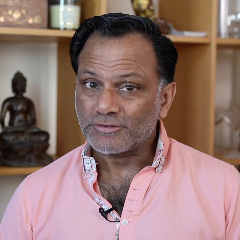You are not currently logged in. Please create an account or log in to view the full course.
Describing Addiction
- About
- Transcript
- Cite
Addiction – Non-Substance Addictions
In this course, Dr Ashok Jansari (Goldsmiths, University of London) explores non-substance addictions, specifically gambling addiction. In the first lecture, we think about how addiction can be described and defined as a concept. In the second lecture, we think about some of the risk factors for developing an addiction. In the third lecture, we think about how gambling machines use partial variable reinforcement, which can generate an addiction. Next, we think about some of the cognitive biases which can lead to addictive behaviour, including the near miss bias, the recall bias, and the gambler’s fallacy. In the fifth and final lecture, we think about some patterns which arise in the process of overcoming addiction, specifically looking at Prochaska’s six-stage model of behaviour change.
Describing Addiction
In this lecture, we think about how to describe and define addiction, focusing in particular on: (i) the three descriptors being tolerance, dependence and withdrawal; (ii) tolerance referring to the amount of substance that can be consumed, while the consumer can still perform behaviours normally; (iii) dependence being split into psychological dependence (maintaining a preferred mood state) and physical dependence (avoiding physical withdrawal symptoms); (iv) withdrawal, which is the effect of removing the addicted substance or behaviour, split into psychological and physical.
Cite this Lecture
APA style
Jansari, A. (2022, June 10). Addiction – Non-Substance Addictions - Describing Addiction [Video]. MASSOLIT. https://massolit.io/courses/addiction-non-substance-addictions/partial-reinforcement-theory
MLA style
Jansari, A. "Addiction – Non-Substance Addictions – Describing Addiction." MASSOLIT, uploaded by MASSOLIT, 10 Jun 2022, https://massolit.io/courses/addiction-non-substance-addictions/partial-reinforcement-theory

